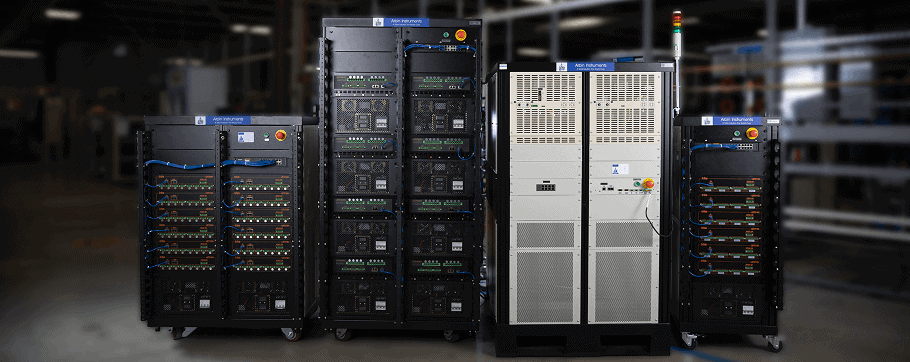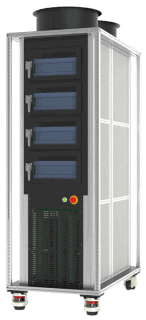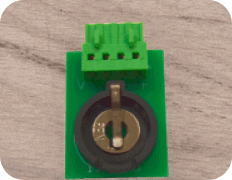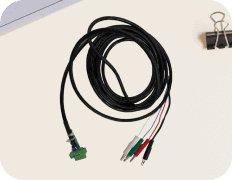Articles
How to plot Potential vs Current Graph by Arbin Data Watcher
1. Introduction 1.1 Background Arbin DataWatcher is primarily used as a real-time data analysis and visualization tool. It allows users to monitor test data, plot curves, and export data files efficiently. It enables users to visualize and analyze key electrochemical parameters such as voltage, current, capacity, and time. 1.2 Purpose […]
Accuracy and Precision: Impact of Precision
We previously examined the impact of measurement accuracy in an earlier article. In this article, we shift our focus to the influence of a battery tester’s precision on battery research. In many research applications, parameters such as dV/dt and dQ/dV are widely used. The reliability of these measurements depends heavily […]
Arbin Instruments at The Battery Show Asia 2026
We are excited to share that Arbin Instruments will be participating in The Battery Show Asia 2026, held from March 10–12, 2026 at AsiaWorld-Expo in Hong Kong — one of the most influential gatherings in the global battery and energy storage industry. This premier three-day business-to-business exhibition and conference brings […]
Accuracy and Precision: Impact of battery tester’s accuracy
In the previous article, we introduced the concepts of accuracy and precision, along with a brief overview of their influence on battery testing. In this article, we will take a deeper look at the impact of accuracy. We will take an example about the impact on capacity measurement and Coulombic […]
Accuracy and precision: Overview
1. Introduction Battery testing is fundamentally a measurement task. Whether evaluating cycle life, coulombic efficiency, voltage response, or degradation mechanisms, the quality of conclusions depends on the quality of the data. Two concepts govern data integrity in any battery test system: accuracy and precision. Although often mentioned together, they describe […]
Overview about what Arbin product to choose – Regenerative features
Energy efficiency is a crucial concern for every factory and department. Arbin’s regenerative products are designed to meet your energy-saving needs with exceptional performance and reliability. I. Understanding the Regenerative Feature The regenerative feature allows energy released during battery discharge to be returned to the power grid, instead of being […]
Test EV Battery pack with real-time drive condition using Simulation Control types
Information and Instructions for using the Simulation control types. 1. General Description Simulation refers to the ability to input data collected from a non-formulated dynamic regime (i.e. other than Constant Current, Constant Voltage, Constant Power, Ramp, Staircase, Pulse, or Formula) as a control function. There are three control types: 1. […]
Driving Battery Innovation: Arbin at The Battery Show India 2025
We are excited to share that Arbin will be participating in The Battery Show India 2025, taking place from October 30 to November 1 at the India Expo Mart & Centre in Hall 7, Booth B352 , Greater Noida. As a global leader in high-precision battery testing technology, Arbin provides […]
How to run cyclic voltammetry on three-electrode(3E) cell using Arbin Tester
I. Introduction to 3E cell In a battery with 2 electrode, when you measure the battery voltage, you measure the potential difference between the cathode and anode of the battery. In this case, you only see the total difference in potentials and do not know how much each electrode contribute […]
Arbin at The Battery Show North America 2025 — Empowering the Future of Energy Innovation
Arbin Instruments was honored to participate in The Battery Show North America 2025 in Detroit — the largest gathering of professionals driving innovation in advanced battery and electric vehicle technology. The event brought together global leaders, researchers, and manufacturers to discuss emerging trends, sustainability, and the technologies shaping the future […]
Moments of Collaboration: Arbin’s Successful Engagement at ICNaB 2025
The event photos from ICNaB 2025 clearly showcase Arbin’s strong presence and successful customer engagement. You can see our team interacting with attendees, demonstrating technology, and explaining solutions to interested visitors. The images capture genuine exchanges — customers asking questions, sharing ideas, and engaging with Arbin staff. Overall, the photos […]
Overview about what Arbin products to choose – Voltage and Current Range
Arbin’s Battery Testing Systems Arbin’s main products are advanced battery testing systems that accurately simulate real-world charge and discharge cycles. These systems help researchers, engineers, and manufacturers evaluate battery performance, safety, and lifespan under a wide range of conditions. Key Specifications Two of the most important specifications of a testing […]
Arbin to Exhibit and Present at Batteries Event Lyon 2025 — Join Us in November
We’re excited to share that Arbin Instruments will be attending Batteries Event 2025 in Lyon, France from November 4 to 6, 2025. Batteries Event is one of Europe’s premier gatherings for the full battery value chain — from raw materials and cell design to manufacturing, testing, second-life, and recycling. Batteries […]
10th International Conference on Sodium Batteries (ICNaB) 2025 in Sydney
We are excited to announce our participation as a sponsor at the 10th International Conference on Sodium Batteries (ICNaB) 2025, hosted by the University of Technology Sydney. The event location is Amora Hotel Jamison Sydney, 11 Jamison Street, Sydney, NSW 22000. This prestigious event serves as a vital platform for leading […]
How to run cyclic voltammetry(CV) using Arbin Tester
Arbin continues to power innovation in many areas of battery research, including electrochemical experiments such as cyclic voltammetry (CV). Arbin equipment is designed to perform electrochemical experiments with the precise circuitry required for linear voltage ramps, while the MITS software gives the user a wide variety of options to create […]
How to perform DC Internal Resistance measurement with Arbin?
Mechanism explanations: Arbin’s MITS software uses pulse method to calculate IR. In order to achieve better accuracy, the software measures the IR 10 times and takes the average. The pulse looks like the graph bellow: IIR is the amplitude value T2 is the extra control value1 I0 is the offset […]
Enhancing Battery Testing Safety with a Door Switch Interlock System
I. Purpose and Applicability Battery testing—whether for electric vehicles, consumer electronics, or industrial systems—demands strict safety protocols. One often overlooked but critical element in test chamber safety is the door switch interlock system. This simple yet powerful mechanism helps prevent injuries, equipment damage, and test data corruption. In this article, […]
Integration of Arbin Instruments with Gamry Potentiostats for High-Frequency EIS up to 2 MHz
According to the standard specifications published by Arbin, integrating a Gamry device with an Arbin system typically limits the device’s original frequency capability from 2 MHz down to 100 kHz. However, in this article, we will introduce a solution that allows the system to retain the full 2 MHz frequency, with some trade-offs […]
How to perform Internal Resistance measurement according to IEC 61960 with Arbin?
IR measurement is crucial to have an insight into a battery. There are many way, i.e. many standard to measure battery’s IR. This article will introduce IEC 61960 standard and how to implement it using Arbin’s equipments. IEC 61960 standard for battery IR: In this standard, a discharge pulse of […]
Integrated Electrochemical Impedance Spectroscopy (EIS) With Arbin Charge/Discharge Channels
Introduction Electrochemical Impedance Spectroscopy (EIS) is a foundational diagnostic technique for evaluating battery health, internal resistance, degradation mechanisms, and electrochemical behavior over time. However, EIS is traditionally limited by hardware complexity and high per-channel cost, making it difficult to scale across large battery test systems. To address these challenges, Arbin […]
































